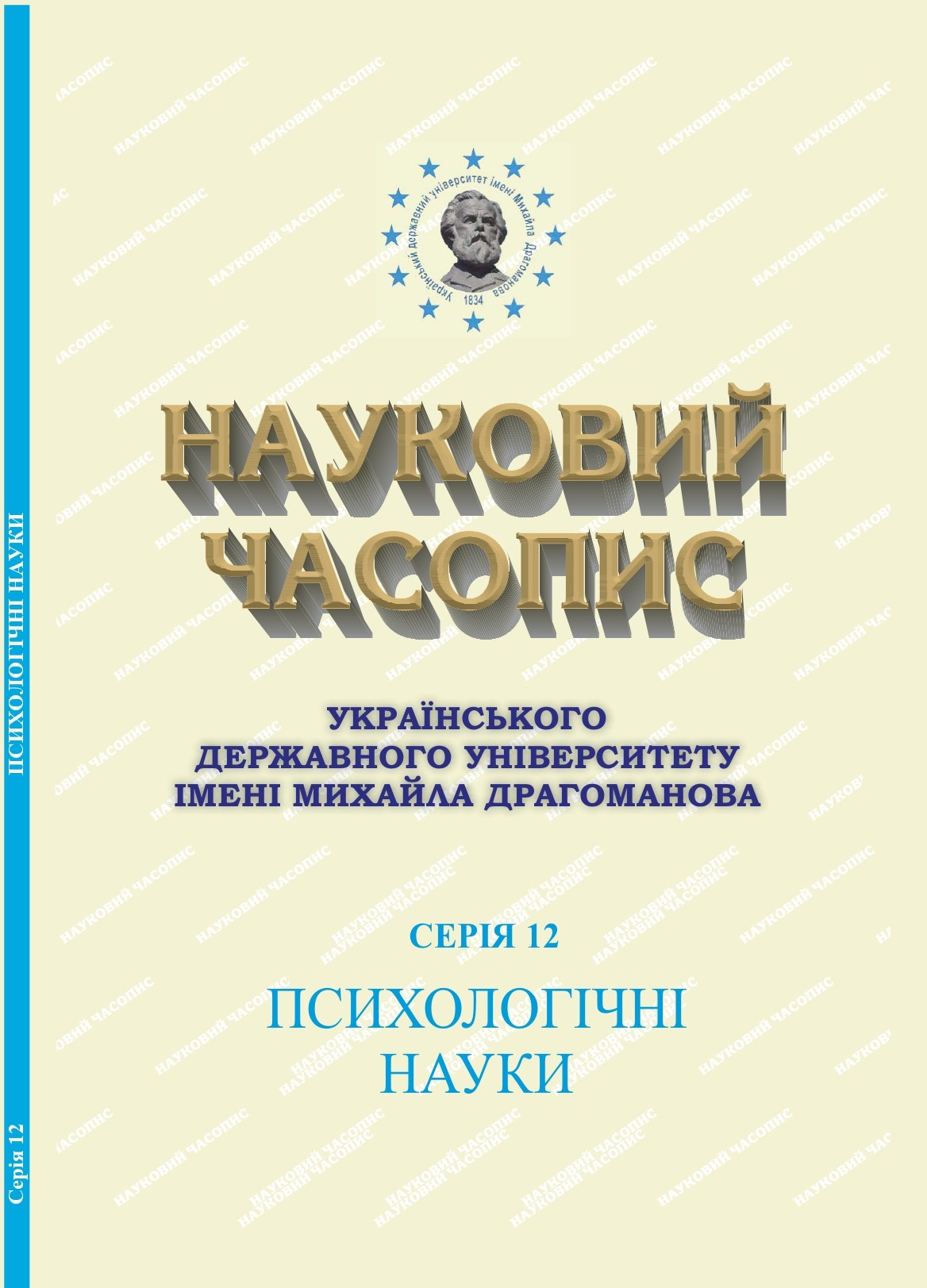PSYCHOLOGICAL DETERMINANTS OF FOREIGN LANGUAGE ACQUISITION BY ADOLESCENTS IN DISTANCE LEARNING
DOI:
https://doi.org/10.31392/UDU-nc.series12.2023.22(67).03Keywords:
distance learning, foreign language acquisition, cognitive abilities, language anxiety, motivation, impulsivity, memory, thinking.Abstract
Objective. The article is focused on the study of psychological determinants that influence the success of foreign language learning by adolescents in the conditions of distance learning. The main focus is on cognitive abilities, namely memory and thinking, as well as individual psychological characteristics, such as motivation, impulsivity, and language anxiety. Research methods. Theoretical: synthesis, comparison, modeling, generalization. Empirical: The English Language Learning Motivation Scale (ELLMS), Barratt Child Impulsiveness Scale (BIS-11c), and the Public Speaking Anxiety Scale (PSCAS) were used to measure individual psychological factors. The Luria Word Memory Test and the Wechsler Intelligence Scale for Children, Fifth Edition (WISC-V) were used to assess cognitive abilities. Mathematical statistics methods were used to analyze and interpret the data: descriptive statistics, correlation analysis, and multiple regression. Results. The results of the study emphasize the multidimensionality of the process of mastering a foreign language in the conditions of distance learning. In particular, cognitive abilities (thinking) and individual psychological factors (language anxiety) turned out to be important predictors of language learning success in distance learning conditions. Language anxiety was found to have a negative correlation with language learning outcomes, while thinking showed a positive correlation in this context. Conclusions. Based on the results obtained, it was found that although cognitive abilities and individual psychological characteristics are key factors in the process of learning a foreign language, only thinking skills and language anxiety were significant predictors in the model of successful language learning in a distance learning environment. Interestingly, despite their proven role in the learning process, memory, motivation and impulsivity did not have a significant impact in the model. This emphasizes the importance of taking into account the psychological difficulties associated with teaching and learning foreign languages online.
References
- Bondar, S.I. (2003). Psykholohichni osoblyvosti chytannia tekstu inozemnoiu movoiu studentamy z riznym kohnityvnym stylem [Psychological features of reading a foreign language text by students with different cognitive styles]. Candidate’s thesis. Kyiv [in Ukrainian].
- Voloshyna, V.V., & Zhovniruk,I. (2021). Psykhotekhniky rozvytku kohnityvno-verbalnykh umin maibutnikh psykholohiv u protsesi vyvchennia anhliiskoi movy [Psychotechniques for the Development of Cognitive and Verbal Skills of Future Psychologists in the Process of Learning English]. Perspektyvy ta innovatsii nauky – Prospects and innovations in science, 3(3), 179–194. https://doi.org/10.52058/2786-4952-2021-3(3)-179-194 [in Ukrainian].
- Lozova,M. (2010). Psykholohichni aspekty zasvoiennia inozemnoi movy [Psychological aspects of learning a foreign language]. Kyiv : KUBG [in Ukrainian].
- Altay, B., & Saracaloglu, A.S. (2017). Investigation on the Relationship among Language Learning Strategies, Critical Thinking and Self-Regulation Skills in Learning English. Novitas-ROYAL. Research on Youth and Language, 11(1), 1–26. Retrieved from https://eric.ed.gov/?id=EJ1167232
- Ardasheva, Y., Tong, S.S., & Tretter, T.R. (2012). Validating the English Language Learner Motivation Scale (ELLMS): Pre-college to measure language learning motivational orientations among young ELLs. Learning and individual differences, 22(4), 473–483. https://doi.org/10.1016/j.lindif.2012.03.001
- Bao, W. (2020). COVID‐19 and online teaching in higher education: A case study of Peking University. Human Behavior and Emerging Technologies, 2(2), 113–115. https://doi.org/10.1002/hbe2.191
- Blakemore, S.J., & Choudhury, S. (2006). Development of the adolescent brain: implications for executive function and social cognition. Journal of child psychology and psychiatry, 47(3‐4), 296–312. https://doi.org/10.1111/j.1469-7610.2006.01611.x
- Cosi, S., Canals, J., & Vigil-Colet, A. (2008). Development of an improved version of the BIS-11c questionnaire: relationships with aggression and scholastic performance. Poster presented at the Xth meeting of the Spanish Society for the Study of Individual Differences. Salamanca.
- Dörnyei, Z. (1998). Motivation in second and foreign language learning. Language teaching, 31(3), 117–135.
- Horwitz, E.K. (2001). Language anxiety and achievement. Annual review of applied linguistics, 21, 112–126. https://doi.org/10.1017/S0267190501000071
- Linck, J.A., Osthus, P., Koeth, J.T., & Bunting, M.F. (2014). Working memory and second language comprehension and production: A meta-analysis. Psychonomic bulletin & review, 21, 861–883. https://doi.org/10.3758/s13423-013-0565-2
- Luria, A.R. (1969). The mind of a mnemonist: A little book about a vast memory. Harvard University Press.
- Rothbart, M.K., & Bates, J.E. (2006). Temperament. Handbook of child psychology. (Vol. 3, pp. 99–166).
- Steinberg, L. (2005). Cognitive and affective development in adolescence. Trends in cognitive sciences, 9(2), 69–74. https://doi.org/10.1016/j.tics.2004.12.005
- Wechsler, D. (2014). WISC-V: Weschler Intelligence Scale for Children (5th ed.). Bloomington, MN : Pearson.
- Wenden, A. (1994). Learner strategies for learner autonomy. ELT Journal, 48(3), 280–281, https://doi.org/10.1093/elt/48.3.280
- Yaikhong, K., & Usaha, S. (2012). A Measure of EFL Public Speaking Class Anxiety: Scale Development and Preliminary Validation and Reliability. English Language Teaching, 5(12), 23–35. http://dx.doi.org/10.5539/elt.v5n12p23

